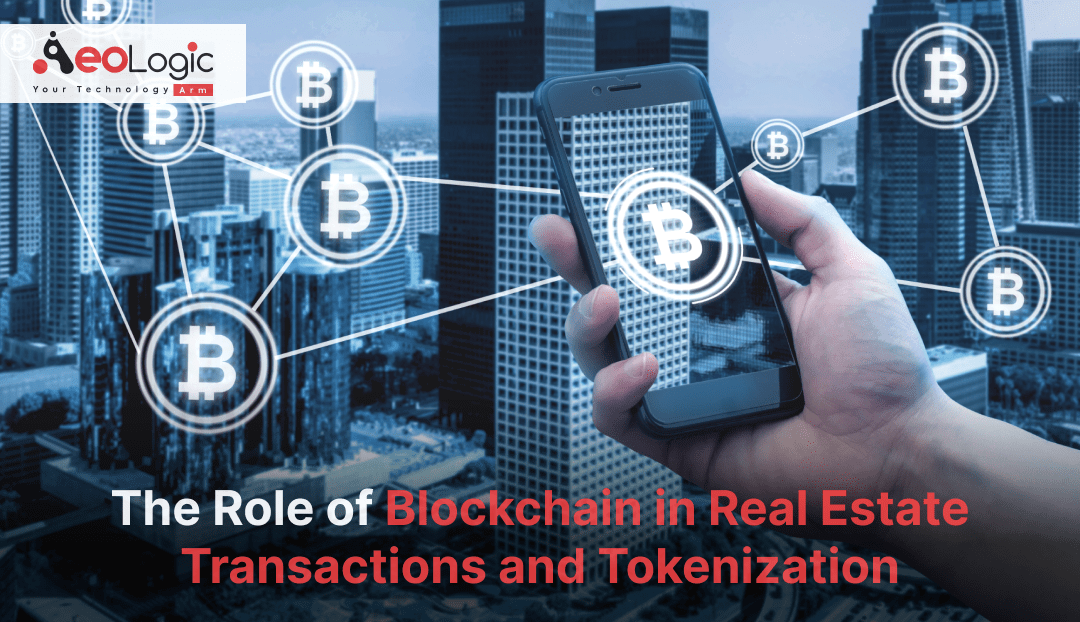The real estate industry is a very unorganized industry but has very significant importance for the world. There are many official real estate dealing organizations, and there are also many unofficial agents, or dealers, too. If we talk about legal and official real estate industry market size at the global level, then the global real estate market size was valued at USD 3.77 trillion in 2023 and is estimated to reach from USD 4.05 trillion in 2024 to USD 7.28 trillion by 2032, growing at a CAGR of 7.6% during the forecast period (2024–2032).
The conventional real estate industry deals in person-to-person interactions and transactions. However, with the development of technologies and advancement of the world, the real estate industry has shifted toward digital methods. Transactions of finance and tokenization are two important aspects that run the real estate industry. The process of converting a real estate asset into a blockchain-based digital token is known as tokenization. Through this procedure, investors might purchase a portion of a property rather than the whole property.
Overview + Related Statistics
The transaction and tokenization process matters the most, and there are a lot of technologies that can enhance these processes. Actually, real estate businesses generally operate in a centralized manner that controls the whole network. This is a big issue, and technology like blockchain can be a good tool or solution to solve this centralized issue and enhance processes like transaction and tokenization. With the implementation of blockchain technology, this is possible to provide transparency to the stakeholders and other aspects that increase trust among the network. Decentralization can also be achieved as there will be no need for any specific financial organization to interfere in any type of transaction that increases the convenience. Security can also be enhanced with blockchain technology, as security matters the most while doing transactions and tokenization in real estate.
The global blockchain market size is projected to grow from USD 20.1 billion in 2024 to USD 248.9 billion by 2029 at a compound annual growth rate (CAGR) of 65.5% during the forecast period. Where the real estate blockchain market is expected to grow from $1.74 billion in 2021 to $3.8 billion by 2028.Blockchain has the potential to save the real estate industry $160 billion in fraud-related costs annually by 2028. $3.4 trillion worth of real estate assets will be tokenized globally in 2024.
We have seen the introductory paragraph that gave us the proper idea about the topic, and also we saw some interesting and solid stats that show the significance of the topic. Now we are going to see some other details like benefits, challenges, and end the topic with a summary part.
What is Blockchain in Real Estate Transactions and Tokenization?
Blockchain technology refers to a database system that allows for secure and transparent sharing of information across a network. In real estate, counterparties can meet on the property, engage in peer-to-peer negotiations, and conduct transactions using a smart contract on a blockchain. Similarly, the payment does not have to pass via banks or other middlemen. The buyer may send it straight to the seller. The digital tokenization process can also be enhanced with the blockchain as it provides safety and data about every token. Overall, this can be a game changer for the real estate industry.
Also read: How Blockchain Could Disrupt the Banking and Finance Sector?
Benefits of Blockchain in Real Estate Transactions and Tokenization
We have to see the benefits of blockchain in real estate transactions and tokenization. Here are a few benefits mentioned below.
Liquidity
Making transactions and tokenization is a very complex process that takes a lot of time. Digitalization of real-world assets in tokenization is not easy for owners, where the implementation of blockchain makes the flow of transactions and tokenization very smooth. For example, if an owner converts its assets into tokens and has transactions, then the blockchain can provide every bit of data that does not waste their time or make any interruption.
Fractional ownership
Fractional ownership is always a thing that can make real estate operations better and easier, like selling, buying tokens, etc. Fractional ownership makes ownership of shares in many parts that make it easy to sell any individual shares or assets. Blockchain technology plays an important role in establishing fractional ownership by overcoming the limitations of traditional asset buying and selling while providing easy investment access, liquidity, diversification, and security to everyone around the world.
Global accessibility
Real estate businesses generally need international operations like transactions, transparent platforms, conversion of assets in international digital currencies, etc. This is not possible without a specific tool, as blockchain can play the role of that specific tool to provide global accessibility. Blockchain technology provides a cross-border transaction facility that helps to avoid the middlemen to save extra agent charges and make every international transaction easy and secure in every manner.
Improved security
Transaction and tokenization are very sensitive operations that need a lot of security, as any external factor can affect the whole system. There are a lot of technologies that offer security to the data but do not provide total safety. But blockchain technology offers a secure database that is not easy to breach. This makes data more secure, which increases the trust of shareholders, owners, and clients too.
Streamlined transaction
Blockchain technology has the potential to improve the transaction in a streamlined manner. . Once certain circumstances are satisfied, smart contracts—digital agreements that are encoded into the blockchain—automatically carry out transactions. This enables quick and easy property transfers by removing the need for drawn-out negotiating procedures and onerous documentation for both buyers and sellers. 
Challenges with Blockchain while Implementing for Real Estate
We have passed through the beneficial terms, but there are a few challenges too that can be a thing to matter. Let me introduce some important challenges as mentioned below.
-
- The legal framework can be an issue while implementing blockchain for real estate, as mentioned earlier, that there are a lot of illegal organizations. So they cannot get the benefits of blockchain technology in the case of implementation by the government or any other official bodies.
-
- Blockchain generally creates decentralized networks of different bodies that can be issued for many to understand as they are habitual to traditional processes.
-
- Multiple options of blockchain platforms can be a hectic thing, as owners can get confused about which one to choose, which wastes a lot of time.
Also read: The Role of Blockchain in Transforming Industries
Final Words
Blockchain technology is undoubtedly one of the best technologies that has been produced or developed in recent years. This technology has benefited the many sectors to establish well-decentralized networks in an organized manner. For real estate, blockchain technology can revolutionize this industry by improving security, transparency, efficiency, etc. While there are a few challenges too that can interrupt the use of blockchain technology, like lack of education, lack of options, lack of legal framework in real estate, cost of implementation, etc., with the advancement and development, these challenges can easily be overcome.
In the end, blockchain technology can be the reason to pave the path of success for the real estate industry, especially in transaction and tokenization aspects.




